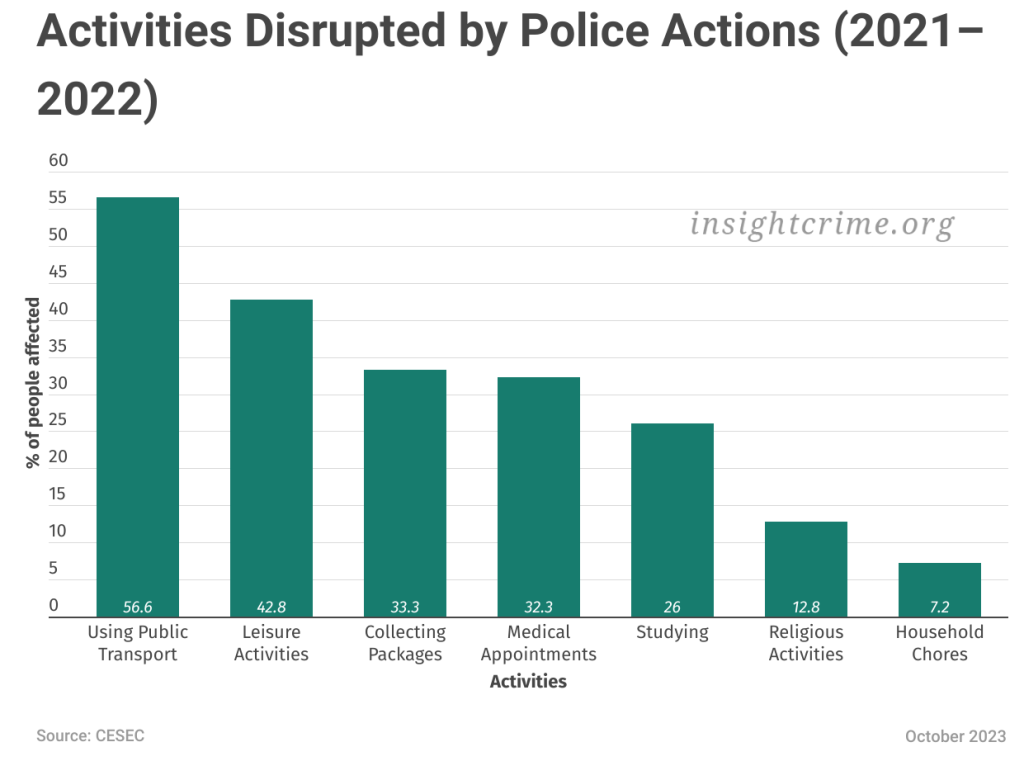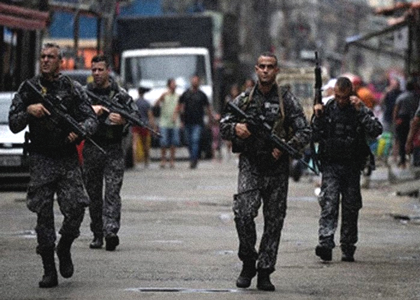The war on drugs has caused millions of dollars in losses for the inhabitants of two of the marginalized urban areas known as favelas most affected by violence in Rio de Janeiro, Brazil, according to a recent study.
The research, carried out by Brazil’s Center for Studies on Security and Citizenship (Centro de Estudos de Segurança e Cidadania – CESEC), was based on 800 questionnaires conducted between June 2021 and May 2022 with residents of the Penha and Manguinhos neighborhoods north of Rio de Janeiro, and business owners in two of the favelas within those neighborhoods, Vila Cruzeiro and Mandela de Pedra.
The Red Command (Comando Vermelho – CV), the oldest criminal group in Brazil, is present in both favelas. The CV controls the local drug market and exercises social control through expulsions and assassinations of those who do not comply with their rules or demands.
SEE ALSO: Red Command
The presence of the CV has made these favelas the target of police operations, which are notoriously violent and often result in extrajudicial executions and civilians caught in the crossfire. One of the bloodiest episodes occurred in May 2022, when military police led an operation against the CV in Vila Cruzeiro, which left at least 26 dead and led to allegations of torture and executions.
The CESEC study shows how the perpetual war between organized crime and police in the favelas, in addition to violence, has an insidious and often hidden impact on favela economies.
Losses to residents and commercial establishments amounted to $3,305,708 during the one-year period covered by the study.
Below, InSight Crime details the characteristics and origins of these losses.
Lost Work Days
The greatest economic loss stemmed from the high proportion of people who were unable to work as a result of police actions in their community.
More than 60% of employed people had to miss work as a result of these incidents, generating a loss of approximately $1.9 million per year.

“Residents were unable to go to work mainly because of the disruption to public transport services, but also because most avoid going out so as not to be caught in the crossfire,” Paula Napolião, research coordinator, told InSight Crime.
Property Damage
Considerable economic impact also resulted from the need to replace or repair property damaged in police operations against drug trafficking, which cost around $952,000 annually.
In the case of residents, most of the damage occurred to their houses, affecting 10.9% of the residents surveyed, followed by damage to vehicles affecting 3.8% of respondents, and harm to electronic equipment affecting 1.9%.

SEE ALSO: Brazil Case Illustrates Struggle With Corrupt Police
Losses to commercial properties were significantly lower, amounting to approximately $12,806 per year.
“The damage caused to residents’ property is higher because we studied two neighborhoods whereas when we studied businesses, we only focused on two favelas,” Napolião explained.
The greatest loss to commercial establishment assets was to business structures, with an estimated value of $3,863, followed by stolen goods valued at $2,173 and property valued at $1,691.
Public Service Interruptions
The supply of public services has also been disrupted as a result of police actions. According to the study, electricity services were suspended 1.5 days per year over the period, internet 1.4 days, garbage collection 1.1 days and water 0.7 days.
Although the numbers seem small, the impacts are significant for those who suffer the lack of these services.
The residents of the favelas also suffered the interruption of other services such as education and health, mainly due to the disruption of public transport services, Napolião said.

